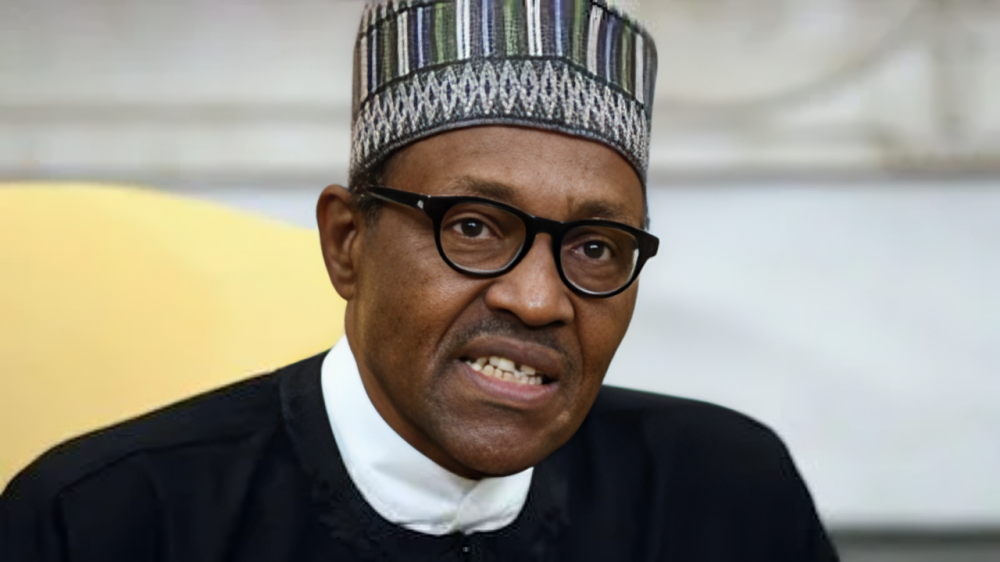Buhari, Nigeria's ex-military, civilian leader, dies at 82
Nigeria’s former President and one of its most defining post-independence figures, Muhammadu Buhari, has died. He was 82.
Buhari passed away on Saturday afternoon in London, United Kingdom, where he had reportedly been receiving medical care in recent weeks. The precise cause of death has yet to be disclosed.
Confirmation of his passing came in a brief but solemn message from his longtime spokesman, Mallam Garba Shehu, who took to his official X (formerly Twitter) handle, @GarShehu, at 5:11 p.m. to relay the family’s announcement.
“The family of the former President has announced the passing on of the former President of Nigeria, Muhammadu Buhari, GCFR, this afternoon in a clinic in London. May Allah accept him in Aljannatul Firdaus, Amin,” the statement read.
Buhari’s death brings to a close a remarkable public life that spanned more than four decades, during which he served Nigeria both as a military ruler and as an elected civilian president, a distinction shared by only one other Nigerian leader, Olusegun Obasanjo.
Born on December 17, 1942, in Daura, Katsina State, Buhari rose through the ranks of the Nigerian Army, eventually emerging as Head of State following the military coup of December 31, 1983.
He ruled with stern discipline until he was ousted in another coup in August 1985.
After years in political wilderness and multiple failed presidential bids, Buhari mounted a dramatic return in 2015 when he defeated incumbent President Goodluck Jonathan, marking the first time an opposition candidate unseated a sitting Nigerian leader at the ballot box. He went on to win re-election in 2019, serving until May 2023.
His civilian presidency was defined by a triad agenda: fighting corruption, tackling insecurity, and revamping infrastructure.
While supporters praised his firm stance on integrity and public discipline, critics often pointed to his government’s human rights record, sluggish economic growth, and over-reliance on foreign medical care, even as the State House Clinic struggled to function.
Notably reserved and austere in personal style, Buhari was revered in the northern region for his perceived simplicity and commitment to public probity.
However, his legacy remains deeply polarizing, marked by both loyalty and controversy.
Reactions to his passing have begun pouring in from across the political spectrum and the international community. World leaders, elder statesmen, and prominent Nigerians are expected to issue statements in the hours ahead.
The Presidency is expected to announce national mourning protocols, which will likely include flying the national flag at half-mast, condolence registers at embassies and government houses, and preparations for a state funeral.
Muhammadu Buhari is survived by his wife, Aisha Buhari, children, grandchildren, and a country forever shaped by his presence in its political and military history.
You may also like...
Diddy's Legal Troubles & Racketeering Trial

Music mogul Sean 'Diddy' Combs was acquitted of sex trafficking and racketeering charges but convicted on transportation...
Thomas Partey Faces Rape & Sexual Assault Charges

Former Arsenal midfielder Thomas Partey has been formally charged with multiple counts of rape and sexual assault by UK ...
Nigeria Universities Changes Admission Policies

JAMB has clarified its admission policies, rectifying a student's status, reiterating the necessity of its Central Admis...
Ghana's Economic Reforms & Gold Sector Initiatives

Ghana is undertaking a comprehensive economic overhaul with President John Dramani Mahama's 24-Hour Economy and Accelera...
WAFCON 2024 African Women's Football Tournament

The 2024 Women's Africa Cup of Nations opened with thrilling matches, seeing Nigeria's Super Falcons secure a dominant 3...
Emergence & Dynamics of Nigeria's ADC Coalition

A new opposition coalition, led by the African Democratic Congress (ADC), is emerging to challenge President Bola Ahmed ...
Demise of Olubadan of Ibadanland
Oba Owolabi Olakulehin, the 43rd Olubadan of Ibadanland, has died at 90, concluding a life of distinguished service in t...
Death of Nigerian Goalkeeping Legend Peter Rufai

Nigerian football mourns the death of legendary Super Eagles goalkeeper Peter Rufai, who passed away at 61. Known as 'Do...



